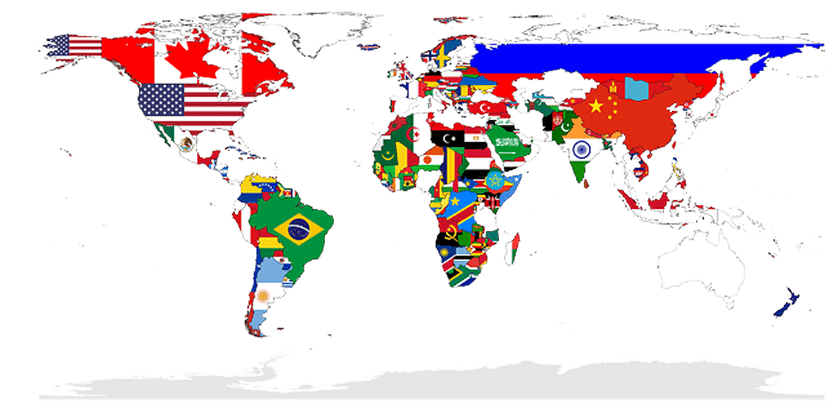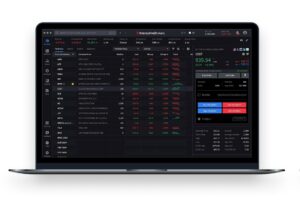At Monday’s close, the Dow Jones Index (US30) was up 0.16%. The S&P 500 Index (US500) added 0.73%. The Nasdaq Technology Index (US100) jumped by 1.01%. Stocks rose on Monday thanks to gains in technology and chip companies’ share prices, with Nvidia up 3% and TSMC, Broadcom, and AMD up nearly 5%, confirming their role as key drivers of market growth in 2024. Congress passed a temporary funding bill and averted a shutdown of the US government, which would have negatively impacted the US economy. Under this bill, the government will be funded until mid-March 2025.
The US durable goods orders report released on Monday was weaker than expected, although capital goods orders were slightly stronger than expected. US Durable Goods Orders for November fell by 1.1% m/m, weaker than expectations of 0.3%, although October’s figure was revised upward to 0.8% from 0.3%. November’s US New Home Sales report came in at 5.9% to 664,000 on Monday, weaker than expected for a rise to 669,000. The Conference Board’s US Consumer Confidence Index for December came in at 8.1 to 104.7, significantly weaker than expectations of an increase to 113.2. Markets are pricing in a 25 bps chance of a rate cut at the January 28–29 FOMC meeting at 9%.
The Canadian dollar weakened to 1.44 per US dollar, nearing its lowest level since March 2020, as investors digested weak GDP data while the US dollar strengthened. Canada’s GDP is estimated to have contracted by 0.1% month-on-month in November, the first decline this year and coinciding with Central Bank warnings and recently lowered growth estimates. The Canadian government revised down its GDP prognoses, cutting economic growth in 2025 to 1.7% from 1.9% and in 2026 to 2.1% from 2.2%. Growing expectations that the Bank of Canada may continue easing rates to support growth could widen the interest rate gap with the US, reducing the attractiveness of the Canadian dollar.
Equity markets in Europe were mostly down on Monday. Germany’s DAX (DE40) fell by 0.18%, France’s CAC 40 (FR40) closed down 0.03%, Spain’s IBEX 35 (ES35) lost 0.28%, and the UK’s FTSE 100 (UK100) closed positive 0.22%. European government bond yields rose after ECB President Lagarde said ECB officials remain vigilant on lingering price pressures in the services sector, but remain confident that the Consumer Price Index is approaching the ECB’s target level. Swaps rate the odds of a -25bp ECB rate cut at the January 30 meeting as 100%, while the odds of a 50bp rate cut at that meeting are 9%.
WTI crude oil prices fell by 0.3% to settle at $69.2 a barrel on Monday as concerns about a possible supply glut in 2025 and a strengthening US dollar pressured markets in pre-holiday trading. Analysts noted the likelihood of a growing supply glut next year, while the dollar’s rise to two-year highs put further pressure on prices by increasing spending by foreign buyers. Geopolitical tensions also intensified, with Donald Trump calling on the EU to increase imports of US energy or the EU will face tariffs.
Qatar has warned it will stop exporting gas to the European Union if the bloc’s countries impose sanctions under recently passed environmental review legislation. The EU directive on environmental impact assessments of businesses, which came into force in July, imposes fines of up to 5% of a company’s annual global revenue if management fails to address negative impacts on human rights or the environment. Qatar has become a crucial LNG supplier to Europe as countries reduce their dependence on Russian supplies.
Asian markets rose steadily yesterday. Japan’s Nikkei 225 (JP225) rose by 1.19%, China’s FTSE China A50 (CHA50) jumped 0.91%, Hong Kong’s Hang Seng (HK50) gained 0.82%, and Australia’s ASX 200 (AU200) added 1.67%. Foreign institutions remain optimistic about China’s capital market in 2025 as the economy will gradually stabilize.
The minutes of the December meeting of the Reserve Bank of Australia (RBA) showed that there is a need to maintain restrictive monetary policy for the time being. The Board emphasized that future rate decisions will be data-dependent, noting that while inflation risks have eased, uncertainty remains due to global conditions and elevated service inflation.









